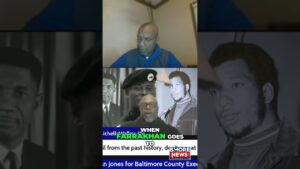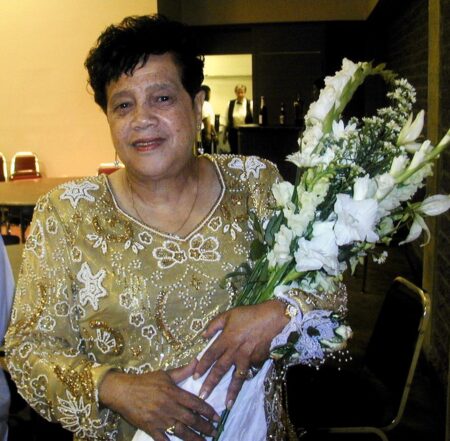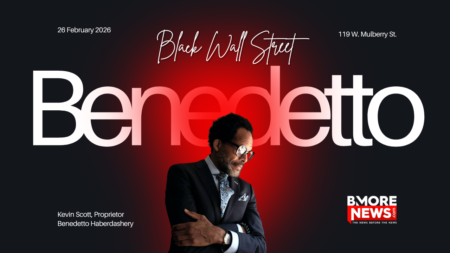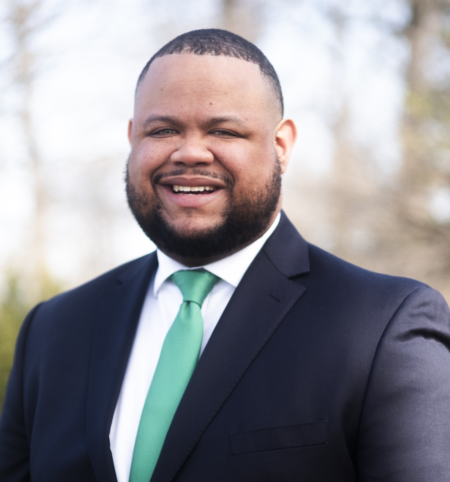BlackWallStreet.org Establishes May as Global “Black Wall Street History Month” — A Movement for Memory, Justice, and Economic Empowerment
(TULSA – April 28, 2025) — In a bold move to reclaim the narrative, honor the past, and ignite a new global economic awakening, BlackWallStreet.org is proud to announce the official establishment of May as “Black Wall Street History Month” around the world.
This historic declaration marks a significant turning point in preserving and elevating Black economic history, beginning with the iconic Greenwood District of Tulsa, Oklahoma—commonly known as “Black Wall Street.” More than just a remembrance of what was lost during the 1921 Tulsa Race Massacre, the month-long global observance seeks to honor what was built: a thriving, self-sufficient Black community that stood as a beacon of possibility.
“This is not just about history. It’s about legacy, justice, and the future,” said Ben Johnson, Global Administrator of BlackWallStreet.org. “We are globalizing the story of Black Wall Street—not just to remember what was destroyed, but to honor what was created, and to multiply that vision across the world.”
The movement to designate May as Black Wall Street History Month stems from decades of silenced suffering erased economic triumphs, and deliberate historical omission. For over a century, the story of Greenwood and other thriving Black communities has often been reduced to a footnote in U.S. history books—if mentioned at all.
In 1921, 300-400 Black residents were killed, 15,000 were displaced, and more than 40 square blocks of wealth, innovation, and opportunity were destroyed in the worst act of white racist terrorism in American history. Yet, this tragedy has only recently entered mainstream awareness because of the leadership of BlackWallStreet.org.
“Black Wall Street was not an anomaly,” said Dr. Michael Carter, Sr., Founder and President of Black Wall Street USA and CEO of BlackWallStreet.org. “It was a blueprint. A living, breathing testimony to what Black people can build when we are free to dream, own, and thrive. May is our declaration to the world that we remember—and that we are rebuilding.”
By anchoring the month of May—a period of reflection and renewal—as a time to educate, honor, and activate global communities, BlackWallStreet.org hopes to enshrine the achievements of Black Wall Streets worldwide as part of our collective cultural fabric.
What began in Greenwood is not isolated. From Durham’s Black Wall Street in North Carolina, to Jackson Ward in Richmond, Virginia, to Africville in Canada, Brixton in the UK, and Soweto in South Africa—Black communities around the world have historically created, sustained, and defended enclaves of economic self-sufficiency and cultural excellence. Black Wall Street History Month is a call to elevate those stories and unify them under one global banner.
“When people walk down Greenwood Avenue today, they feel the echoes,” said Vincent Beasley, Chief of Staff of the Black Wall Street USA Office of the President. “The voices of shopkeepers, barbers, doctors, and teachers. Those voices were silenced by violence, but not erased. May gives us space to listen again—and to speak back with power.”
Through international partnerships, academic alliances, grassroots mobilization, and digital outreach, BlackWallStreet.org is building a month-long, multimedia campaign to include history tours, documentary screenings, curriculum distributions, digital archives, global panels, investment opportunities, and commemorative ceremonies across cities.
Each May will bring a renewed focus on different themes, starting with the 2025 inaugural theme: “Rebuild the Vision.” Future years will center around generational wealth, education, political power, global diaspora unity, tech innovation, and healing justice. The month will also serve as a time for municipalities and national governments to reckon with their own roles in the systemic economic marginalization of Black communities, and to take measurable steps toward reparative justice.
“We’re not asking for permission. We’re making it plain,” said Johnson. “This is an act of cultural sovereignty. We are declaring Black Wall Street History Month, and we invite the world to join us—not just in memory, but in movement.”
The global launch of Black Wall Street History Month will be headquartered in Tulsa, with a slate of events planned in partnership with surviving families, cultural organizations, universities, and civic leaders. Kickoff ceremonies will include a symbolic candlelight vigil, a reopening of the Historic Vernon AME Church, the unveiling of the Global Wall Street Archive, an international youth summit, and a worldwide moment of silence streamed on May 31st.
“This is more than a tribute,” said Rick Reese, Deputy Chief of Staff of US Domestic Affairs for Black Wall Street USA. “It’s a resurrection. We are restoring dignity, visibility, and pride to people who were denied all three for generations. May is our monument, carved in time.”
From Tulsa to the world, Black Wall Street History Month is a living, breathing campaign of recognition and transformation. It seeks not only to preserve the past but to mobilize the present and empower the future.
“I live and breathe Tulsa, and I’ve walked past those plaques and memorials often,” said Raheemah Raheem, State Director of Black Wall Street Oklahoma. “But now, we’re not just remembering. We’re doing. We’re building. We’re teaching our kids that they come from greatness, not grief.”
Global Launch Honors the Legacy of Black Excellence, Entrepreneurship, and Resistance While Confronting Historical and Present-Day Injustice
“This month means our elders are seen, our children are taught, and our communities are mobilized,” added Ethel Cain Russell, Deputy Chief of Staff of US States for Black Wall Street USA and founder of the POP Movement. “Black Wall Street History Month is not just a moment. It’s a movement. And it starts now.”
Other events include the Black Wall Street Rally starting on May 15th through the 17th, when thousands of bikers and supporters arrive in the Greenwood district.
Additional programming throughout the month will spotlight youth-led entrepreneurial expos, international Black film showcases, virtual and in-person roundtable discussions with global Black business leaders, and interfaith remembrance services. These efforts are intended to bridge generational divides, unite diasporic communities, and foster environments where Black innovation is celebrated, funded, and protected.
Educational institutions are being encouraged to integrate Black Wall Street history into their spring curricula and participate in the “31 Days of Black Wall Street” educational challenge, which provides lesson plans, daily reflection prompts, and guest speakers from the descendants of Greenwood survivors and modern-day entrepreneurs.
“Our goal is nothing short of transformational,” said Dr. Carter. “We want May to be a classroom, a church, a boardroom, a street rally, and a healing space all at once. Because the legacy of Black Wall Street deserves more than acknowledgment—it deserves activation.”
Beyond Tulsa, BlackWallStreet.org has already engaged with leaders from Lagos, London, Johannesburg, and Kingston to establish local observances and collaborative economic forums, ensuring the month reflects both a shared history and a shared vision for the future.
As global attention turns toward Greenwood each May, the hope is that communities everywhere will take inventory of their own local heroes, builders, and lost legacies, using this momentum to fuel a broader economic renaissance rooted in dignity and self-determination.
“It’s a global table now,” said Reese. “We’re inviting people to bring their stories, their vision, their pain, and their brilliance. Black Wall Street is no longer just a place. It’s a principle. It’s a call to excellence.”
BlackWallStreet.org calls on educators, legislators, activists, artists, faith leaders, business owners, and everyday citizens across the globe to recognize and uplift May as Black Wall Street History Month. The time is now to connect the pain of our past to the power of our potential.










